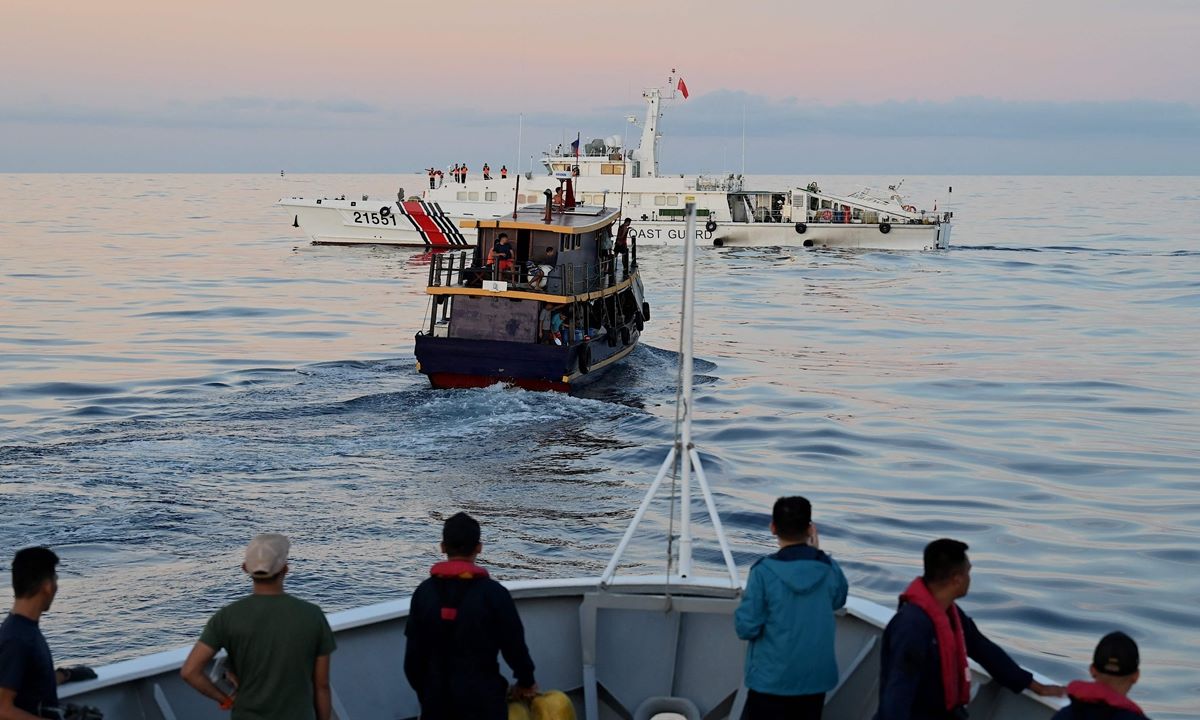The Philippine government announced on Sunday that China and the Philippines have reached an agreement intended to alleviate confrontations at the highly contested Second Thomas Shoal in the South China Sea.
The Philippines controls Second Thomas Shoal, which is also claimed by China. Increasingly aggressive maritime encounters have raised concerns about potential larger conflicts that could involve the United States.
The pivotal agreement was finalized on Sunday following a series of meetings between Philippine and Chinese diplomats in Manila, along with exchanges of diplomatic notes.
The goal was to establish a mutually acceptable arrangement at the shoal, known as Ayungin in the Philippines and Ren’ai Jiao in China, without altering either side’s territorial claims.
Two Philippine officials, who were familiar with the negotiations, confirmed the deal to The Associated Press on condition of anonymity. The government subsequently issued a brief statement announcing the agreement but did not provide specific details.
According to the Department of Foreign Affairs in Manila, “Both sides continue to recognize the need to deescalate the situation in the South China Sea and manage differences through dialogue and consultation and agree that the agreement will not prejudice each other’s positions in the South China Sea.”
Shortly after midnight on Sunday, China’s Ministry of Foreign Affairs announced that discussions with the Philippines had focused on “managing the situation at Ren’ai Jiao and reached a provisional arrangement with the Philippines regarding the humanitarian resupply of living necessities.”
China has territorial disputes with several countries over land and sea borders, many of which are in the South China Sea.
The agreement with the Philippines may offer hope that similar arrangements could be negotiated by Beijing with other nations to avoid conflicts while unresolved territorial issues remain.
However, it is yet to be seen if the deal will be successfully implemented and how durable it will be.

Chinese coast guard and other forces have used powerful water cannons and dangerous blocking tactics to prevent food and other supplies from reaching Filipino navy personnel stationed at the shoal on the rusting warship, the BRP Sierra Madre.
The territorial standoff has been marked by frequent escalations since last year. In the most severe confrontation, Chinese forces on motorboats repeatedly rammed and boarded two Philippine navy boats on June 17, preventing Filipino personnel from transferring food, supplies, and firearms to the ship outpost.
Chinese forces also seized and damaged the Philippine navy boats with machetes and improvised spears, confiscating seven M4 rifles and other supplies. Several Filipino navy personnel were injured, including one who lost a thumb. The chaotic skirmish was documented in video and photos released by Philippine officials.
Both China and the Philippines have blamed each other for the incident and asserted their own claims over the shoal.
The United States, along with key Asian and Western allies including Japan and Australia, condemned the Chinese actions at the shoal and called for adherence to the rule of law and freedom of navigation in the South China Sea, a critical global trade route with abundant fishing resources and undersea gas deposits.
Besides China and the Philippines, Vietnam, Malaysia, Brunei, and Taiwan are involved in separate but increasingly tense territorial disputes in the South China Sea, a potential flashpoint in the US-China regional rivalry.
The US military has maintained a presence in the region for decades, conducting freedom of navigation and overflight patrols, which China views as a threat to regional stability.
While the US does not claim territory in the disputed waters, it has repeatedly stated its obligation to defend the Philippines, its oldest treaty ally in Asia, if Filipino forces, ships, or aircraft come under armed attack, including in the South China Sea.
One of the Philippine officials mentioned that the June 17 confrontation accelerated the negotiations between Beijing and Manila for an arrangement to prevent further clashes at Second Thomas Shoal.
In the final meetings over the past four days, two key Chinese demands that had been obstacles were removed from the draft agreement.
China had previously required that the Philippines not bring construction materials to reinforce the deteriorating ship and that Manila provide advance notice and allow inspections of the ships carrying supplies.
The Philippines rejected these conditions, and they were not included in the final deal, according to the Philippine officials.


